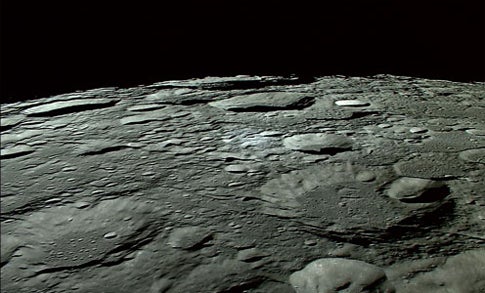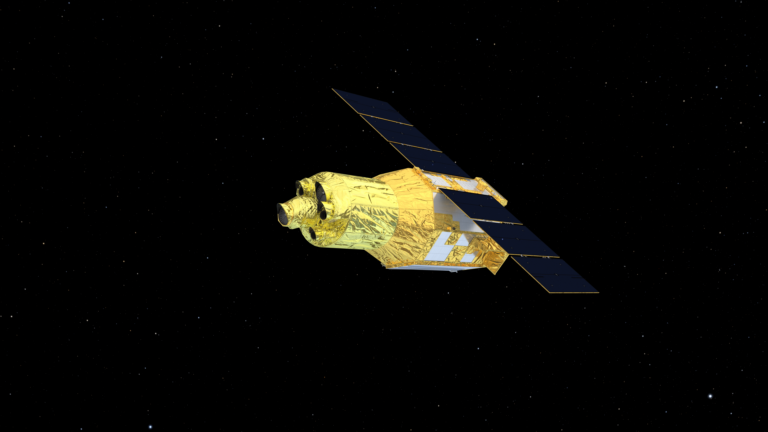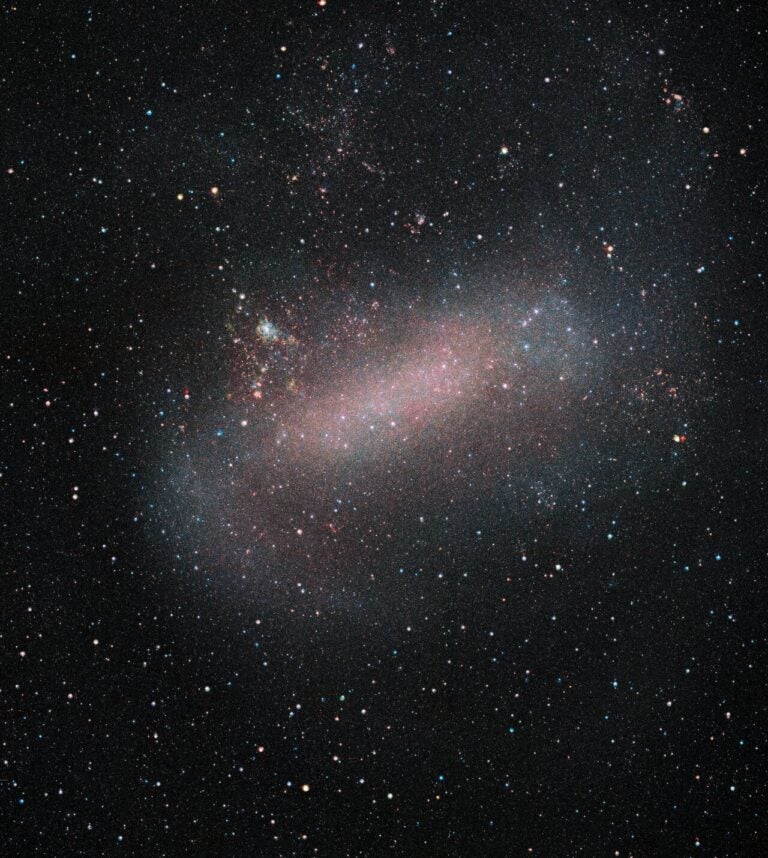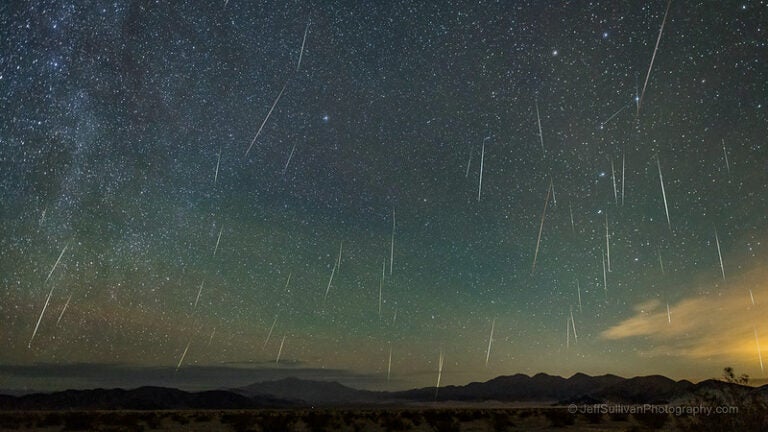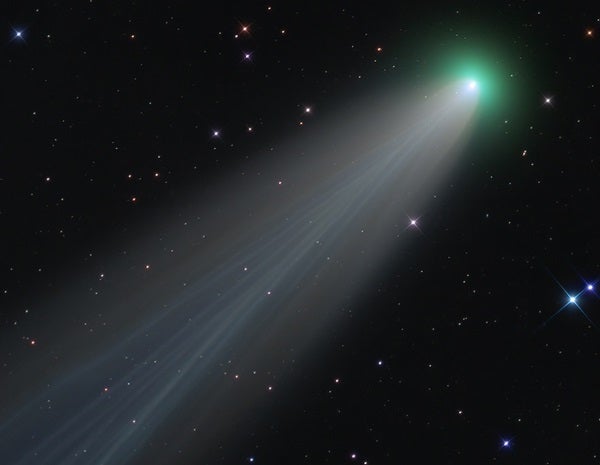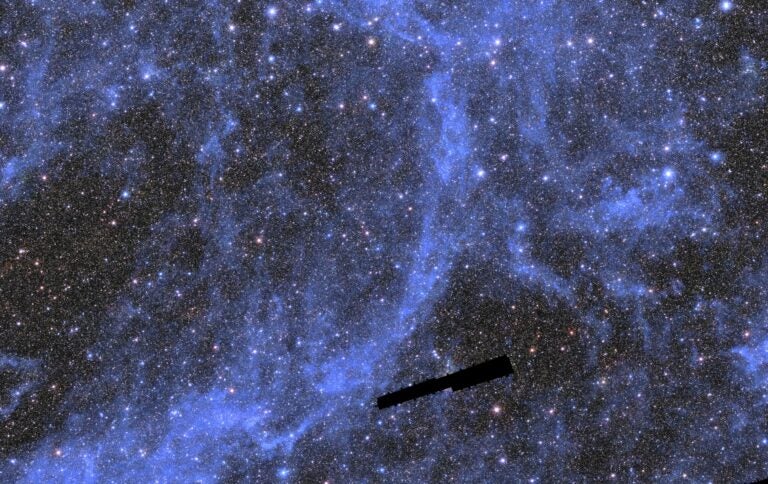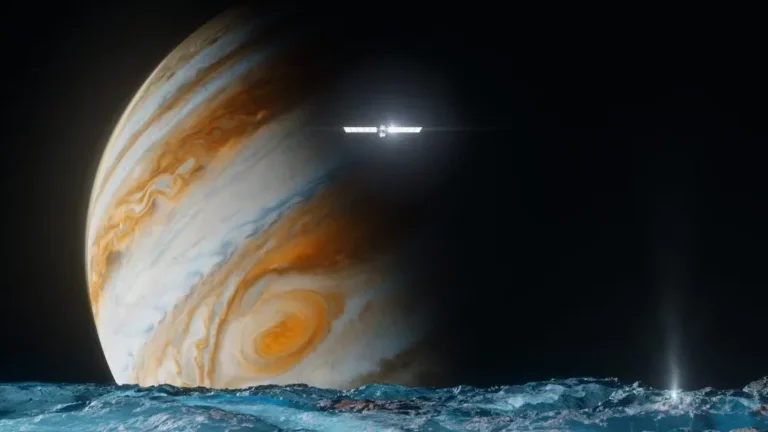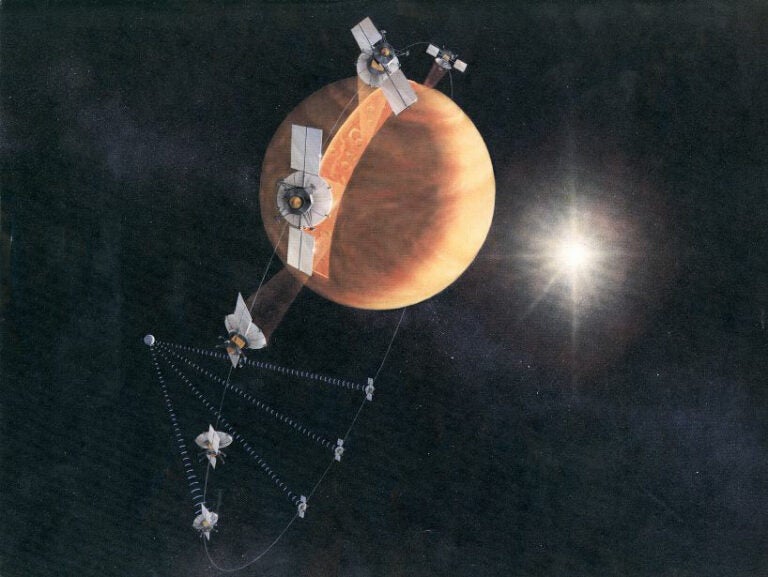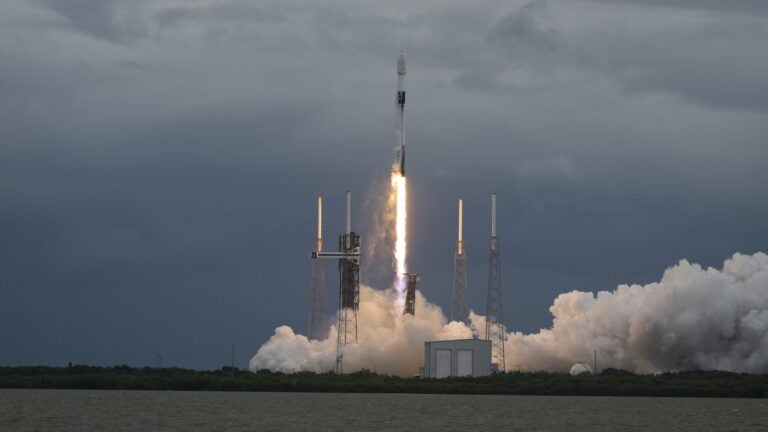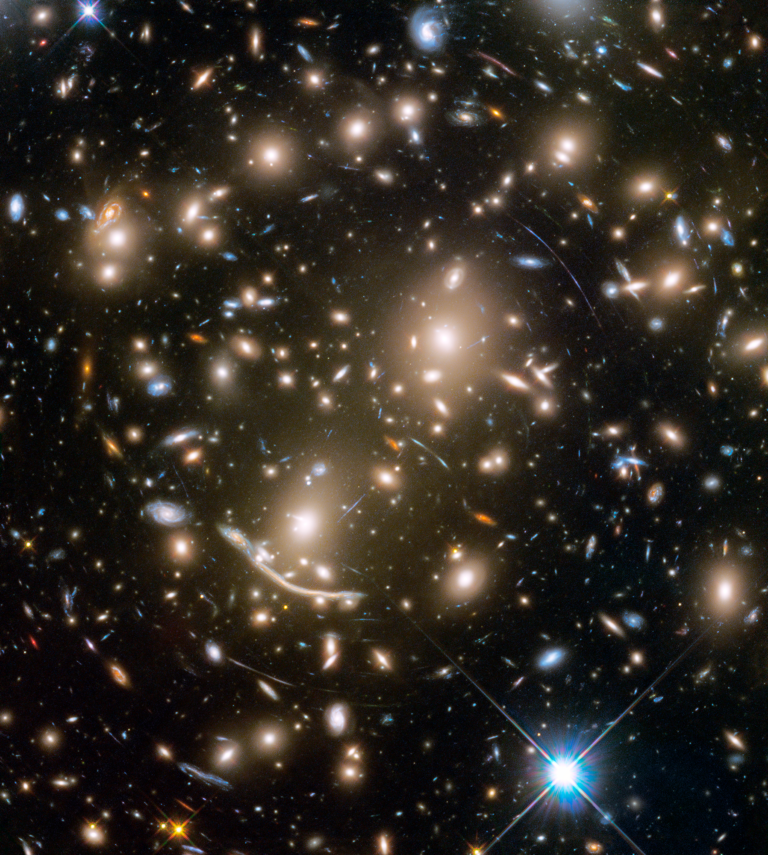The Japan Aerospace Exploration Agency (JAXA) and NHK (Japan Broadcasting Corporation) have successfully performed the world’s first high-definition image taking by the lunar explorer “KAGUYA” (SELENE,) which was injected into a lunar orbit at an altitude of about 100 km on October 18, 2007, (Japan Standard Time. Following times and dates are all JST.)
The image shooting was carried out by the onboard high definition television (HDTV) of the KAGUYA, and it is the world’s first high definition image data acquisition of the Moon from an altitude about 100 kilometers away from the Moon.
The image taking was performed twice on October 31. Both were eight-fold speed intermittent shooting (eight minutes is converged to one minute.) The first shooting covered from the northern area of the “Oceanus Procellarum” toward the center of the North Pole, then the second one was from the south to the north on the western side of the “Oceanus Procellarum.” The moving image data acquired by the KAGUYA was received at the JAXA Usuda Deep Space Center, and processed by NHK.
The satellite was confirmed to be in good health through telemetry data received at the Usuda station.
View JAXA’s movie here.

